The False Promise of Criminal Justice Reform
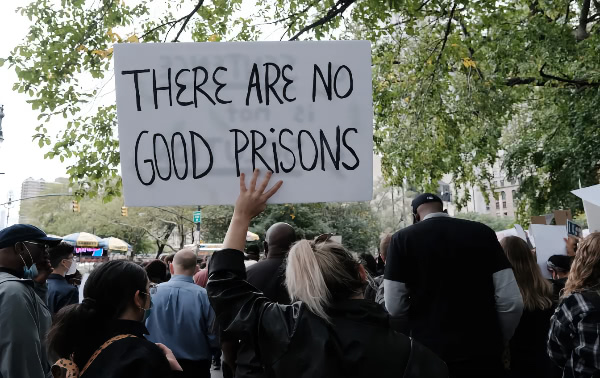
Could recent progress towards criminal justice reform actually be a bad thing?
Charlotte Rosen makes the case that currently considered (and previously enacted) reforms actually strengthen the current racialized criminal punishment system.
Rosen, writing for The Nation:
The recent George Floyd Justice in Policing Act, which passed the House of Representatives earlier this year but stalled in the Senate, offers a perfect example of the illusion of reform. Proposed by Representative Karen Bass (D-Calif.) in response to last year’s protests, the act had the veneer of bold action: It would ban no-knock warrants and choke holds, limit qualified immunity for police, create a national registry on police misconduct, promote the increased use of body cameras, bar racial profiling, and more. It received praise from elected officials and the philanthropic and pundit classes; Van Jones dubbed it “sweeping legislation to match the will of the people.” As Derecka Purnell wrote, however, for all the fanfare surrounding the act, its proposals were “woefully insufficient” and “could not even have saved George Floyd’s life.” For example, there was no chokehold involved in Floyd’s death; instead, Derek Chauvin killed him by forcefully kneeling on his neck. Similarly, given that Floyd did break the law by trying to pass a counterfeit bill, it is difficult to argue that police used his race to presume criminality. More generally, the use of body cameras has not reduced police brutality and might well give law enforcement more power to surveil citizens. For all the lavish praise it received, the Justice in Policing Act, even if passed, would amount to little more than superficial changes that allow policing as we know it to continue apace. Even more suspiciously, the bill would ultimately funnel millions more dollars to law enforcement.
The piece is enlightening throughout. Much of Rosen’s research comes from the book Carceral Con by activists Kay Whitlock and Nancy Heitzeg.
Whoopi Goldberg’s American Idea of Race
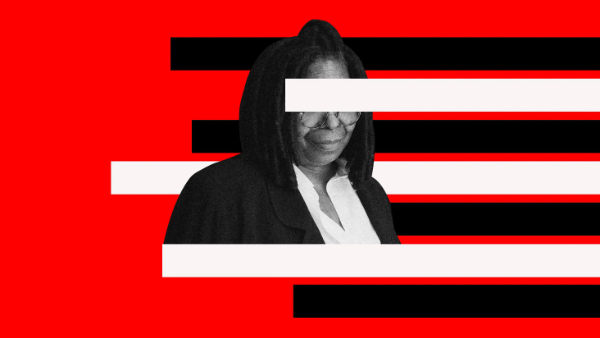
Adam Serwer, writing for The Atlantic:
Whoopi Goldberg, the actor and a co-host of The View, stumbled into a public-relations nightmare for ABC on Monday when she insisted that “the Holocaust wasn’t about race.” After an episode of The Late Show With Stephen Colbert aired in which she opined that “the Nazis were white people, and most of the people they were attacking were white people,” she was temporarily suspended from The View. She has apologized for her remarks.
Goldberg was speaking from the (modern) American point of view that if people have white skin, they belong to the white race.
I don’t mean to pile on Goldberg here, who I think is struggling with an American conception of “race” that renders the anti-Semitism that led to the Holocaust illegible. I regard her remarks not as malicious, but as an ignorant projection of that American conception onto circumstances to which it does not apply. In America, distinctions among European immigrants that were once considered deeply significant dissolved in the melting pot, leaving an absence in popular memory that might explain their salience elsewhere, and how someone could be seen as white in America and yet still be subject to persecution based on their “race.”
Serwer continues:
The Nazi Holocaust in Europe and slavery and Jim Crow in the United States are outgrowths of the same ideology—the belief that human beings can be delineated into categories that share immutable biological traits distinguishing them from one another and determining their potential and behavior.
Brian Flores’s Lawsuit Has Brought the NFL’s Black Coaching Crisis to Its Boiling Point

On Tuesday, Brian Flores, former head coach of the Miami Dolphins, filed a class-action racial discrimination lawsuit against the NFL.
Kaelen Jones, reporting for The Ringer:
The problem for the league is that merit doesn’t factor into its decision-making when it comes to Black coaches. There is currently one Black head coach in the NFL (Mike Tomlin of the Pittsburgh Steelers) and 24 white coaches. In 2021, only 34.5 percent of assistant coaches were Black; 57.7 percent were white. The player demographics are nearly inverted: 58 percent of NFL players identified as Black and 25 percent identified as white. […]
Flores’s lawsuit will force the NFL to deal with its complex and deeply ingrained issues under the eye of public scrutiny. The suit explicitly mentions his goal is to “shine a light on the racial injustices that take place inside the NFL.”
It’s Time to End Race-Based Affirmative Action

John McWhorter for The New York Times:
It’s not that I’m opposed utterly to affirmative action in the university context, admitting some students under different grade and test score standards than other students. I just think affirmative action should address economic disadvantage, not race or gender.
McWhorter, later in the piece:
“Diversity” has become one of those terms (and ideas) that makes us feel cozy inside, like freshly baked blueberry muffins and “A Charlie Brown Christmas.” But how would you feel about looking a Black undergraduate in the eye and saying, “A lot of the reason we wanted you here, on our campus, is your differences from most of the other students and the life lessons they can learn from them”? Someone says, “I want my kids to interact with Black students before they go out into the world.” I ask, “Just what was it about Black people that you were hoping your kids would learn?”
Here’s the story behind Black History Month — and why it’s celebrated in February
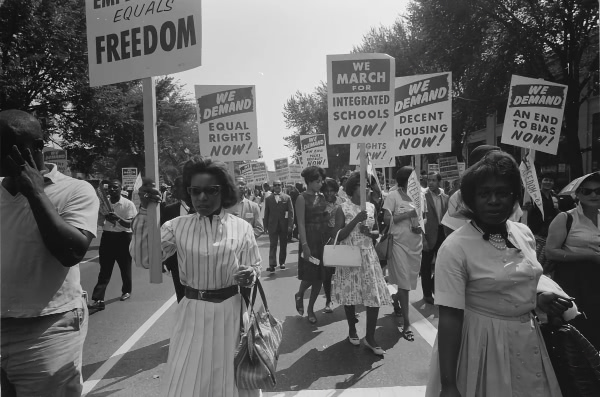
Jonathan Franklin, writing for NPR:
February was chosen primarily because the second week of the month coincides with the birthdays of both Abraham Lincoln and Frederick Douglass. Lincoln was influential in the emancipation of slaves, and Douglass, a former slave, was a prominent leader in the abolitionist movement, which fought to end slavery.
Lincoln and Douglass were each born in the second week of February, so it was traditionally a time when African Americans would hold celebrations in honor of emancipation.
Remembering Harry T. Moore, the man who ‘laid the groundwork for the modern civil rights movement’
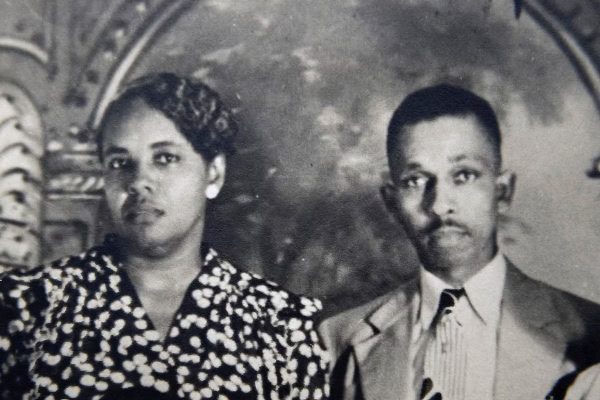
Greg Allen for NPR:
Seventy years ago, one of the first civil rights leaders of the modern era was killed in a bombing in Florida. Harry T. Moore isn’t as well known as civil rights icons Medgar Evers or Martin Luther King Jr. Moore’s activism began earlier, in the 1930s. His work in Florida investigating lynchings and registering African Americans to vote cost him his life.
Quinta Brunson Made Network TV Cool Again

Ashley Ray-Harris, writing for Vulture:
Most people know Quinta Brunson as “the Girl Who’s Never Been on a Nice Date” or the BuzzFeed Meme Girl. She got her start as a stand-up comedian but found her audience by memeing well, as she puts it, playing characters like “the girl who could Milly Rock on any block” and the woman who, shocked by her date’s ability to afford a large popcorn, yells, “He got money!” So when Brunson’s sitcom, Abbott Elementary, debuted on ABC this past December, much of Twitter exclaimed, “The ‘He Got Money Girl’ is on TV now? I love that for her!” unaware that she is also the show’s creator, writer, and executive producer.
A scene from the show:
‘Civil Rights Queen,’ the Story of Constance Baker Motley
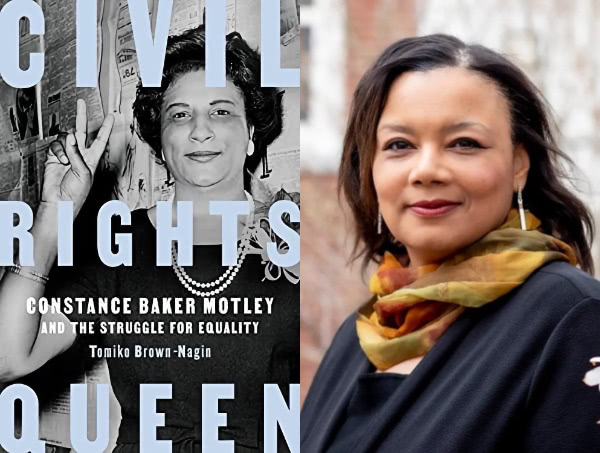
Code Switch host Karen Grigsby Bates speaks with author Tomiko Brown-Nagin about Civil Rights Queen, her biography of Constance Baker Motley who was the first Black woman to serve as a federal judge.
Grigsby Bates:
[Motley] was instrumental in successfully challenging Jim Crow laws throughout the South and played a significant role in Brown versus the Board of Education, which finally made school segregation illegal nationwide. Motley was also the first Black woman to argue a case before the Supreme Court, the first to be elected to the state Senate in New York, the first woman elected Manhattan borough president.
Balloons, Plants, and Bubble Wrap Become Powerful Subversive Symbols in Alicia Brown’s Portraits
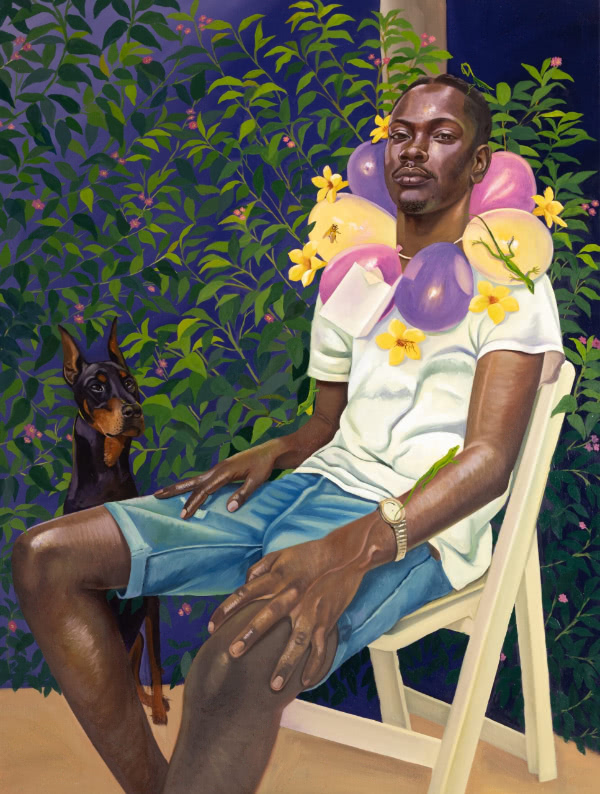
Grace Ebert, writing for Colossal:
In her new body of work What About the Men?, Jamaica-born, Sarasota-based artist Alicia Brown extracts and reenvisions elements of traditional portraiture. She recasts objects of cultural and social status, like the elaborate gowns and thick ruffled collars worn by wealthy aristocrats throughout the 16th and 17th centuries, by instead rendering her subjects in casual clothing like shorts and rubber flipflops with colorful latex balloons, plants, and plastic bubble wrap coiled around their necks.
Brown:
As an artist from the Caribbean, Jamaica, which was colonized by Europe, presently there is still that system of classism that has its origin during slavery and colonialism in Jamaica that the natives have to navigate in order to fit into society. I have referenced the collar as an object that is European and replaced it with objects such as spoons, cotton swaps, shells, balloons, bubble wrap, and recently elements of nature. These collars adorned the neck of the models who are regular people and who are constantly going through a performance of creating an identity to gain acceptance.
What About the Men? is on view through March 6 at UUU Art Collective in Rochester.
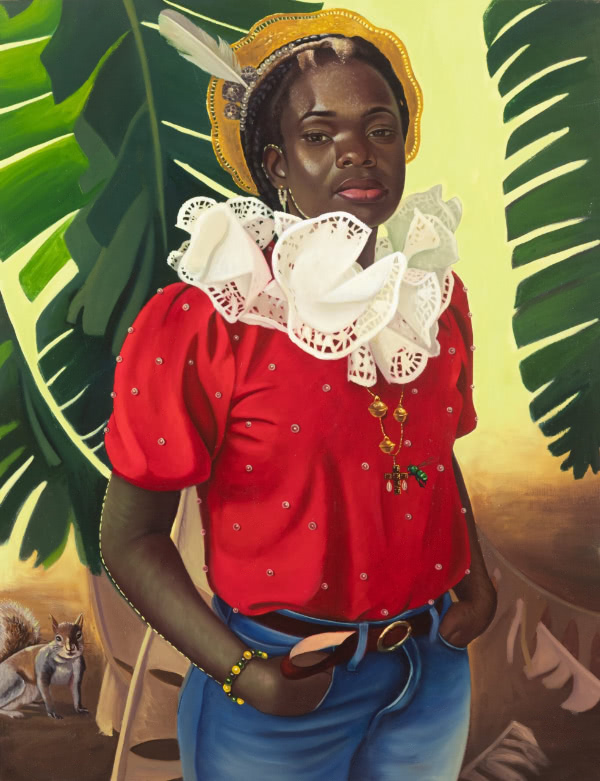
Thanks for reading. See you next week.
